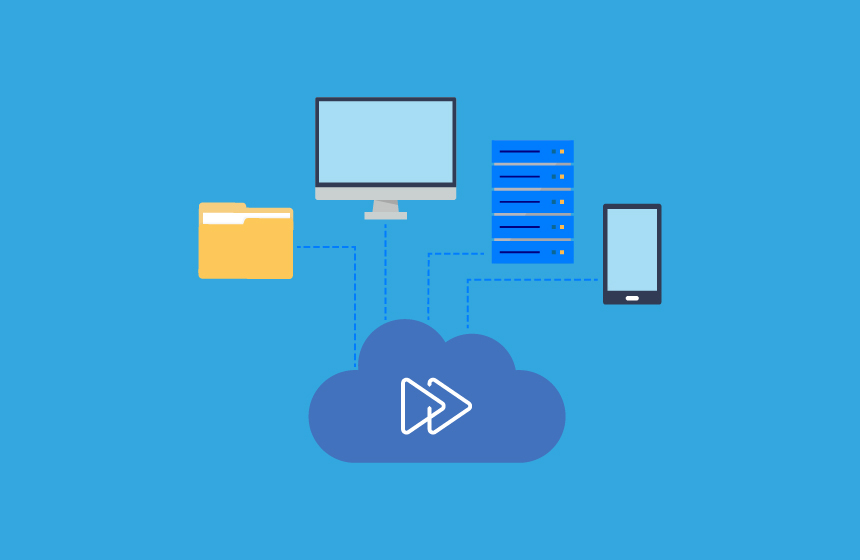Web hosting is the backbone of the digital landscape, providing the infrastructure for websites to thrive on the internet. As the online realm experiences unprecedented growth, reliable web hosting services become increasingly vital. In a world where businesses, organisations, and individuals depend on an online presence, web hosting ensures websites are accessible, secure, and perform optimally.
This blog post delves into the future of web hosting, exploring the emerging trends and technologies that will shape the industry. As we navigate the dynamic digital era, understanding these developments is crucial for businesses and individuals seeking to stay at the forefront of an ever-changing online environment.
Table of Contents
Cloud Hosting
Cloud hosting is a paradigm shift from traditional hosting methods. It involves the use of virtual servers that draw computing resources from an extensive network of physical servers. The key advantage of Cloud hosting lies in its scalability and flexibility. Unlike traditional hosting, Cloud hosting allows users to scale their resources on demand, ensuring optimal performance during traffic spikes and cost savings during periods of lower activity.
The flexibility of Cloud hosting is evident in its ability to adapt to evolving business needs. Users can easily customise their resource allocation, choose specific configurations, and access diverse services. Additionally, the pay-as-you-go model enhances cost-effectiveness, as organisations only pay for the resources they consume.
This scalability, flexibility, and cost-effectiveness make Cloud hosting plan an attractive option for businesses, promising improved performance and the potential to significantly reduce overall IT expenses.
Related: Cloud Hosting vs Traditional Hosting: Which Is Better
Artificial Intelligence (AI) in Web Hosting
Artificial Intelligence (AI) is revolutionising web hosting by being seamlessly integrated into various services. In terms of security, AI algorithms analyse patterns and detect anomalies, fortifying the website’s defences against cyber threats. This proactive approach enhances overall security, safeguarding websites from potential breaches.
AI’s impact also extends to website performance optimisation, which is crucial in improving load times. By analysing user behaviour and predicting traffic patterns, AI optimises resource allocation, ensuring faster and more efficient content delivery.
Furthermore, AI enables personalised user experiences by analysing data on individual preferences and behaviours. This personalisation not only enhances user satisfaction but also contributes to improved website performance.
As AI continues to advance, its integration into web hosting services holds the promise of not just heightened data security and performance but a more tailored and engaging online experience for users.
Edge Computing
Edge computing – a decentralised computing paradigm – brings processing power closer to the data source or “edge” of the network, reducing the need for centralised data processing. In web hosting, edge computing plays a pivotal role in optimising performance.
The primary benefit of edge computing lies in reduced latency and improved website speed. By processing data closer to the end-user, the time it takes for information to travel between the server and the user is significantly minimised. This leads to faster response times and a more seamless user experience.
Beyond speed improvements, edge computing enhances website security and reliability. Distributing computing resources across multiple edge locations adds a layer of redundancy, reducing the risk of single points of failure. This not only improves the overall reliability of web hosting services but also bolsters security by mitigating the impact of potential disruptions or attacks.
Learn: What Is The Future of Reseller Hosting: Trends and Predictions
Green Web Hosting
Green web hosting is a sustainable approach that prioritises environmentally friendly practices to reduce the carbon footprint of hosting services. It involves using renewable energy sources, energy-efficient technologies, and adopting eco-friendly practices in data centers to minimise environmental impact.
The importance of green web hosting lies in its contribution to reducing carbon emissions associated with traditional hosting methods. By relying on renewable energy sources like solar or wind power, green hosting significantly decreases the environmental impact of data centers. Thus, aligning technology infrastructure with ecological sustainability goals.
Moreover, its benefits extend beyond environmental responsibility. Green hosting often reduces providers’ energy costs, making it economically viable. Additionally, businesses that embrace green hosting can enhance their brand reputation, appealing to environmentally conscious consumers and demonstrating a commitment to corporate social responsibility.
As the global focus on sustainability grows, the potential for green web hosting to become an industry standard is evident. With increased awareness and the pursuit of greener alternatives, adopting eco-friendly hosting practices is poised to become a norm in the web hosting industry.
To Sum Up
These are some of the key trends shaping the future of web hosting. Cloud hosting is known for its scalability, flexibility, and cost-effectiveness, while Artificial Intelligence can help enhance security, optimise performance, and personalise user experiences.
Edge computing has emerged as a transformative force, emphasising reduced latency, improved speed, security, and reliability. Whereas, green web hosting underscores the importance of sustainability, reducing carbon emissions, and enhancing brand reputation.
Staying abreast of these emerging trends is crucial in navigating the dynamic landscape of website hosting. As the digital world evolves, businesses and individuals must recognise the significance of adopting cutting-edge technologies to ensure optimal website performance and security.
When choosing a web hosting provider, considering these trends is essential. By aligning with providers embracing innovations like cloud computing, AI integration, edge computing, and sustainability, users can future-proof their online presence. Thereby, guaranteeing a seamless, secure, and environmentally conscious web hosting experience to their users.

